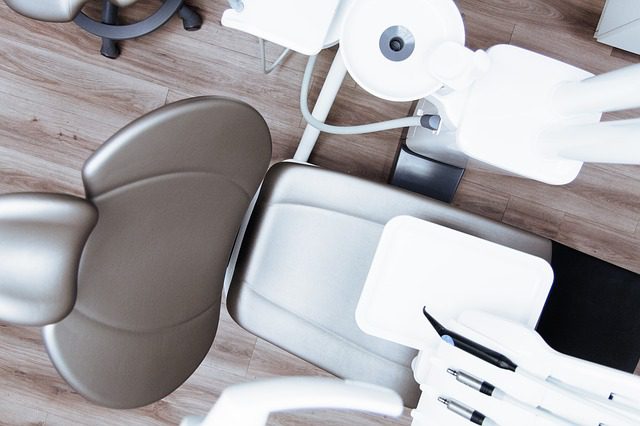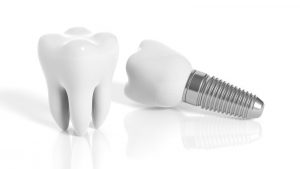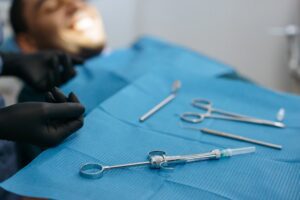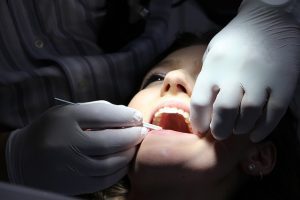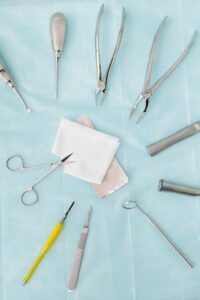As maxillofacial surgeons, we get asked many questions about sedation for oral surgery. There are a number of options available. While sedation dentistry is commonly referred to as sleep dentistry, most types of sedation dentistry don’t actually put you to sleep. Sedation for oral surgery can be beneficial if you have high anxiety or are facing a dental procedure or oral surgery that can be especially uncomfortable, such as a full mouth reconstruction.
As a licensed oral surgeon, Dr. Puckett is trained and certified to offer all forms of sedation dentistry. Sedation can be very beneficial for older patients, young patients, or patients who simply face a high degree of anxiety. Understanding the types of sedation for oral surgery is important not only for the oral surgeon (obviously) but for the patient as well; often times the less mysterious something is, the less likely we are to be afraid of it. This is just as true for knowing the details of your upcoming oral surgery procedure as it is for knowing the details of how the sedation for the oral surgery will affect your body.
What is Dental Sedation?
Dental sedation (also known as sedation dentistry) can be done to either calm a patient down before the procedure, or to make you more comfortable during longer and/or more invasive procedures. It’s different from the numbing agents or pain shots your dentist or oral surgeon may give you to remove pain. (Though some patients undergo minor dental sedation such as laughing gas to deal with anxiety about getting the numbing shot.) Most forms of dental sedation help you relax, not knock you out completely. For most oral surgeries, you will be awake for the procedure.
Are You Always Unconscious for Sedation Dentistry?
General anesthesia is the only type of sedation dentistry that puts you completely unconscious. This may be necessary for some types of oral surgery or for people who face a high amount of dental anxiety. Most forms only serve to relax you to vary degrees. You don’t necessarily need to be knocked out to have your wisdom teeth extracted, but it’s up to you. Dr. Puckett is well versed in each type of sedation for oral surgery, including IV (general) anesthesia, which takes extra education, certification and a skilled hand.
Sedation Dentistry Method #1: Nitrous Oxide
Commonly known as laughing gas, nitrous oxide is used to relax you during the procedure. It wears off quickly. Don’t worry — you’ll be able to drive yourself home following treatment. This is a less invasive form of sedation dentistry for oral surgery. We don’t use nitrous oxide at our practice, but at other practices this type of sedation for oral surgery might be available, mostly for the same reason as oral sedation: to chill you out during a procedure that might seem scary or stressful. A calm patient is ideal in every oral surgery, not just for the patient’s peace of mind, but for the oral surgeon’s ability to complete the procedure without complications from an anxious, squirming patient.
You’ll be conscious throughout the administration of laughing gas. It is given through a nose apparatus that gently rests on your face like a mask. The effects are mild but work fast. You’ll typically feel very relaxed as early as 30 seconds into the procedure. Please note, most oral surgeons do not use nitrous oxide for procedures; it’s more commonly used in general dentistry.
Sedation Dentistry Method #2: Oral Sedation
Oral sedation, such as diazepam, is administered as a pill prior to the procedure. Depending on your oral surgeon’s recommendations, you may take one pill the night before your appointment, and one pill an hour before you sit in the chair. You’ll still be awake throughout the oral surgery, but greatly relaxed. This can be especially beneficial if you have high levels of anxiety.
Technically, you’ll be conscious, but you’ll have very little memory of the treatment. (Do you really want to remember a wisdom teeth extraction anyway?) You’ll likely be hooked up to diagnostic equipment that monitors heart rate, blood pressure, and breathing. You’ll feel very sleepy throughout the experience, but the effects wear off by the next day. With this type of sedation for oral surgery, you’ll need someone to drive you to and from your oral surgery appointment.
Sedation Dentistry Method #3: IV Sedation
There are a number of forms of IV sedation. For “twilight sedation,” you’ll technically be conscious but not aware of your surroundings. You’ll likely have very little to no memory of the experience. It is still possible for the maxillofacial surgeon to wake you up.
General anesthesia is the only form of sedation dentistry where you are literally put to sleep for the duration of the oral surgery. This kind of sedation is necessary for a number of significant oral surgeries, like the extraction of a wisdom tooth that’s impacted or the dental implant surgery for tooth replacement. The length, complexity and invasiveness of the oral surgery will determine whether your oral or maxillofacial surgeon chooses general anesthesia for your specific surgery. These procedures usually happen in a clinic, hospital or treatment center like Wilmington Oral Surgery. Either a nurse anesthetist or an anesthesiologist will administer the sedative and monitor your vital signs.
Dentist or Oral Surgeon Qualifications for Sedation Dentistry
Nearly any dentist can administer nitrous oxide or oral sedation pills. Twilight types of IV sedation require special certifications, and more dentists have become qualified in these types of sedation dentistry recently. Most oral surgeons are licensed to provide all forms of sedation dentistry for oral surgery. Because their specialization is oral and/or maxillofacial surgeries, they need, and are required to be, experts at all types of sedation for oral surgeries so they can keep their patients safe and comfortable. That’s why deep sedation requires the completion of a special program. Dr. Puckett is qualified and skilled in all forms of sedation dentistry.
Talk to Your Oral Surgeon or Dentist About Sedation Methods for Oral Surgery
What form of sedation dentistry is right for you? That depends on your own level of anxiety, the intensity of the oral surgery you are undergoing, and the dentist or oral surgeon who cares for you. Talk to your maxillofacial surgeon about what might work best for you. Sedation dentistry can be beneficial even in mild cases of anxiety. Some people with smaller mouths or extreme pain needs may benefit. Neurodivergent patients may also benefit from sedation dentistry even during routine procedures like dental cleanings.
If you’ve had a bad experience or face dental phobias, sedation dentistry may also be for you. It’s the same for if you are resistant to local anesthetic, and it’s a good idea if you have particularly sensitive oral nerves. Call us at Wilmington Oral Surgery for more information on sedation for oral surgery, and make sure to ask Dr. Puckett any and all of your questions during your pre-op consultation.
